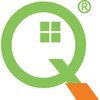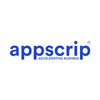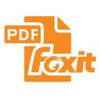Junior Engineer - Quality Assurance
70+ Junior Engineer - Quality Assurance Interview Questions and Answers

Asked in QualityKiosk Technologies

Q. What is the difference between Smoke and Sanity Testing?
Smoke testing is a quick test to check if the basic functionalities of the software are working, while sanity testing is a more thorough test to check if the specific changes or fixes made to the software are working as expected.
Smoke testing is done to ensure the stability of the software build, while sanity testing is done to ensure the specific changes or fixes made to the software are working as expected.
Smoke testing is a subset of regression testing, while sanity testin...read more

Asked in Ashok Iron Works

Q. Types of sand, Properties of sand, Types of Metals
Sand types, properties and metal types are important for quality assurance in engineering.
Types of sand include silica sand, green sand, and resin-coated sand.
Properties of sand include grain size, shape, and texture.
Types of metals include ferrous metals (iron, steel) and non-ferrous metals (aluminum, copper).
Metal properties include strength, ductility, and conductivity.

Asked in TCS

Q. What is the difference between an array and an ArrayList?
Array is a fixed-size data structure while ArrayList is a dynamic-size data structure in Java.
Array is a fixed-size collection of elements of the same data type, while ArrayList is a dynamic-size collection that can grow or shrink.
Arrays can store primitive data types and objects, while ArrayList can only store objects.
Arrays require a specific size to be declared, while ArrayList can dynamically resize itself.
Arrays use square brackets [] for declaration, while ArrayList is ...read more

Asked in Tech Mahindra

Q. What are the 7 QC tools?
The 7 QC tools are a set of techniques used in quality control to identify and solve problems.
Check sheets: Used to collect and organize data for analysis.
Pareto charts: Used to prioritize problems by their frequency or impact.
Cause-and-effect diagrams: Used to identify and analyze the root causes of problems.
Histograms: Used to visualize the distribution of data.
Scatter diagrams: Used to identify relationships between variables.
Control charts: Used to monitor and control pro...read more

Asked in LTIMindtree

Q. Can we change the wait time during runtime?
Yes, wait time can be changed during runtime by adjusting the code logic or configuration settings.
Wait time can be changed by modifying the code to include dynamic wait times based on certain conditions.
Configuration settings in the application or system can also be adjusted to change wait times.
For example, in automated testing scripts, wait times can be adjusted based on the response time of the application being tested.

Asked in Power2sme

Q. How would you write test cases for the Facebook tag feature?
Test cases for Facebook tag feature
Verify that the tagged person receives a notification
Check if the tag appears on the tagged person's timeline
Ensure that the tag is clickable and redirects to the tagged person's profile
Test if the tag is visible to the tagged person's friends
Verify that the tag is not visible to people who are not friends with the tagged person
Check if the tag is removable by the person who posted it
Ensure that the tag is not removable by anyone else except...read more
Junior Engineer - Quality Assurance Jobs




Asked in Modicare

Q. What is black box and white box testing.
Black box testing focuses on testing the functionality of a system without knowledge of its internal code, while white box testing involves testing the internal code structure.
Black box testing is based on external expectations and specifications.
White box testing is based on internal code structure and logic.
Black box testing is also known as functional testing.
White box testing is also known as structural testing.
Example: Testing a website by clicking on links without knowi...read more

Asked in Wipro

Q. What is Manual Testing?
Manual testing is the process of manually testing software for defects without the use of automation tools.
Manual testing involves executing test cases manually without any automation tools.
Testers follow a set of test cases to ensure all aspects of the software are functioning correctly.
It is time-consuming but allows for exploratory testing and human intuition.
Examples include regression testing, smoke testing, and ad-hoc testing.
Share interview questions and help millions of jobseekers 🌟


Asked in LTIMindtree

Q. How do you handle windows using Selenium?
To handle windows in Selenium, you can use the switchTo() method to switch between windows.
Use getWindowHandles() to get all window handles
Use switchTo().window() to switch to a specific window handle
Perform actions on the desired window
Asked in Venpa Global Technologies

Q. What are smoke and sanity testing?
Smoke testing and sanity testing are two types of software testing used to check the basic functionality of an application.
Smoke testing is a type of testing that checks whether the basic functionalities of an application are working or not.
Sanity testing is a type of testing that checks whether the bugs that were found in the previous testing have been fixed or not.
Smoke testing is done to ensure that the application is stable enough for further testing.
Sanity testing is don...read more

Asked in LTIMindtree

Q. What is XPath, and what are its types?
XPath is a language used for navigating through XML documents and selecting nodes based on their attributes or values.
XPath stands for XML Path Language.
It is used to navigate through elements and attributes in an XML document.
There are two types of XPath: Absolute XPath and Relative XPath.
Absolute XPath starts from the root node, denoted by a single forward slash (/).
Relative XPath starts from the current node, denoted by a double forward slash (//).

Asked in Foxit

Q. What is the difference between verification and validation?
Verification ensures that the product is built according to the requirements, while validation ensures that the product meets the customer's needs.
Verification checks if the product is built correctly, while validation checks if the right product is built.
Verification is a process of evaluating documents, design, code, and program, while validation is a process of evaluating the final product.
Verification is done before validation.
Examples of verification include code reviews...read more

Asked in TCS

Q. What is the difference between Assert and Verify?
Assert checks if a condition is true, while verify checks if a condition is true and reports if it is false.
Assert is used to validate the expected result of a test case
Verify is used to validate the actual result of a test case
Assert throws an exception and stops the test execution if the condition is false
Verify reports the failure but continues with the test execution
Assert is used for critical validations, while verify is used for non-critical validations

Asked in Capgemini

Q. Write an XPath expression to locate the Google search button.
Xpath for Google search button
Use the following Xpath: //input[@name='btnK']
The 'btnK' is the name attribute of the Google search button
Make sure to test the Xpath in a browser console to ensure accuracy

Asked in Infosys

Q. What is the difference between static and dynamic testing?
Static testing is done without executing the code, while dynamic testing involves executing the code.
Static testing is performed during the early stages of development to prevent defects from entering the codebase.
Dynamic testing is carried out during the later stages of development to validate the behavior of the software.
Examples of static testing include code reviews, walkthroughs, and inspections.
Examples of dynamic testing include unit testing, integration testing, and s...read more

Asked in LTIMindtree

Q. How do you manually test a scroll bar?
To handle a scroll bar, simply click and drag the scroll bar up or down to navigate through a webpage or document.
Click on the scroll bar and drag it up or down to move through the content.
Use the scroll wheel on your mouse to scroll up or down.
On touch devices, swipe up or down on the screen to scroll.
You can also use the arrow keys on your keyboard to scroll up or down.

Asked in Wissen Technology

Q. What are implicit and explicit waits in Selenium?
Implicit and Explicit waits are used in Selenium to handle synchronization issues in web automation testing.
Implicit wait is used to tell the WebDriver to wait for a certain amount of time before throwing a NoSuchElementException.
Explicit wait is used to tell the WebDriver to wait for a certain condition to occur before proceeding further.
Implicit wait is set globally for the entire WebDriver instance, while explicit wait is applied only to specific elements.
Example: driver.m...read more

Asked in MagicBricks

Q. Tell me about your previous work experience.
I have worked as a Junior QA Engineer for 2 years in a software development company.
Worked on testing web and mobile applications
Created test cases and executed them
Identified and reported defects
Collaborated with developers to resolve issues
Participated in Agile development process

Asked in Averta Strategy

Q. What are some test scenarios for a door?
Test scenarios for doors include functionality, security, and usability checks to ensure proper operation and safety.
Check if the door opens and closes smoothly without obstruction.
Verify that the door locks securely and the key or mechanism works correctly.
Test the door's response to different types of force (e.g., pushing, pulling).
Ensure the door aligns properly with the frame when closed.
Evaluate the door's sound insulation by checking noise levels from both sides.
Assess ...read more

Asked in Baker Hughes

Q. What is RTM?
RTM stands for Requirements Traceability Matrix. It is a document that links requirements to test cases to ensure all requirements are tested.
RTM is a tool used in software testing to ensure all requirements are tested.
It links requirements to test cases and helps in tracking the progress of testing.
It helps in identifying any gaps in testing and ensures complete test coverage.
RTM is useful in maintaining the quality of the software product.
Example: If a requirement states th...read more

Asked in LTIMindtree

Q. How do you handle popup windows?
To handle a popup window, you can use automation tools like Selenium WebDriver to locate and interact with the popup elements.
Use Selenium WebDriver to switch to the popup window
Identify and interact with elements on the popup window
Perform necessary actions on the popup window
Switch back to the main window after handling the popup

Asked in Jdaas Technology

Q. What is abstraction in C#?
Abstraction in C# is the process of hiding the implementation details and showing only the necessary features of an object.
Abstraction allows us to focus on what an object does rather than how it does it
It helps in reducing complexity and improving maintainability of the code
In C#, abstraction is achieved using abstract classes and interfaces
Asked in Mittal Precision Auto Comps

Q. What does CC mean?
CC can refer to several things depending on the context, such as cubic centimeters, carbon copy, or credit card.
CC stands for cubic centimeters, which is a unit of measurement for volume commonly used in the automotive industry.
CC can also stand for carbon copy, which is a copy of a document or email sent to multiple recipients.
In the context of credit cards, CC refers to the credit card number.
CC can also stand for closed captioning, which is a text display of the audio cont...read more

Asked in Amazon

Q. What is regression testing?
Regression testing is the process of retesting a software application to ensure that new code changes have not adversely affected existing functionality.
Regression testing is performed after code changes to verify that the existing functionality still works as expected.
It helps in identifying any defects introduced by new code changes.
Regression testing can be automated to save time and effort.
Examples of regression testing tools include Selenium, JUnit, and TestNG.

Asked in Tata Electronics

Q. How quickly can you insert fixed parts?
The speed at which fixed parts are inserted depends on various factors such as the complexity of the part and the efficiency of the assembly process.
The speed of fixed parts insertion can be influenced by the design of the parts themselves - simpler parts may be inserted faster than complex parts.
Efficiency of the assembly process, including the use of automation or manual labor, can also impact the speed of fixed parts insertion.
Factors such as the accuracy of the machinery ...read more

Asked in TCS

Q. What is the difference between throw and throws?
In software testing, 'throw' is used to raise an exception, while 'throws' is used to declare exceptions that a method may throw.
throw is used to raise an exception in a program
throws is used in method signature to declare exceptions that the method may throw
throw is a keyword in Java, while throws is a keyword used in method declaration

Asked in Ivy Mobility Solutions

Q. Define Regression Testing.
Regression testing is the process of retesting a software application to ensure that new code changes have not adversely affected existing functionality.
Regression testing is performed after code changes to verify that the existing features still work correctly.
It helps in identifying any defects introduced by new code changes.
Regression testing can be automated to save time and effort.
It ensures that the software maintains its quality and functionality over time.
Examples of ...read more

Asked in Infosys

Q. What is SDLC and STLC?
SDLC stands for Software Development Life Cycle, which is a process used by software development teams to design, develop, and test high-quality software products. STLC stands for Software Testing Life Cycle, which is a subset of SDLC focused on testing activities.
SDLC involves planning, designing, coding, testing, and deployment stages.
STLC involves test planning, test design, test execution, and test closure stages.
SDLC is focused on the overall development process, while S...read more

Asked in Belrise Industries

Q. Theory of machine and welding parameters
Theory of machine is the study of mechanisms and their applications, while welding parameters refer to the variables that affect the quality of a weld.
Theory of machine involves the study of various types of mechanisms, such as gears, cams, and linkages.
It focuses on understanding the principles of motion, force, and energy transfer in machines.
Welding parameters include factors like welding current, voltage, travel speed, and electrode size.
These parameters determine the qua...read more

Asked in ICICI Bank

Q. What is the SDLC process?
SDLC is a structured process for developing software, ensuring quality and efficiency throughout its lifecycle.
1. Requirement Analysis: Gathering and analyzing user requirements. Example: Conducting surveys to understand user needs.
2. Planning: Defining the scope, resources, and timeline. Example: Creating a project plan with milestones.
3. Design: Creating architecture and design specifications. Example: Designing UI/UX mockups.
4. Implementation: Writing and compiling code. E...read more
Interview Experiences of Popular Companies





Top Interview Questions for Junior Engineer - Quality Assurance Related Skills

Calculate your in-hand salary
Confused about how your in-hand salary is calculated? Enter your annual salary (CTC) and get your in-hand salary


Reviews
Interviews
Salaries
Users










